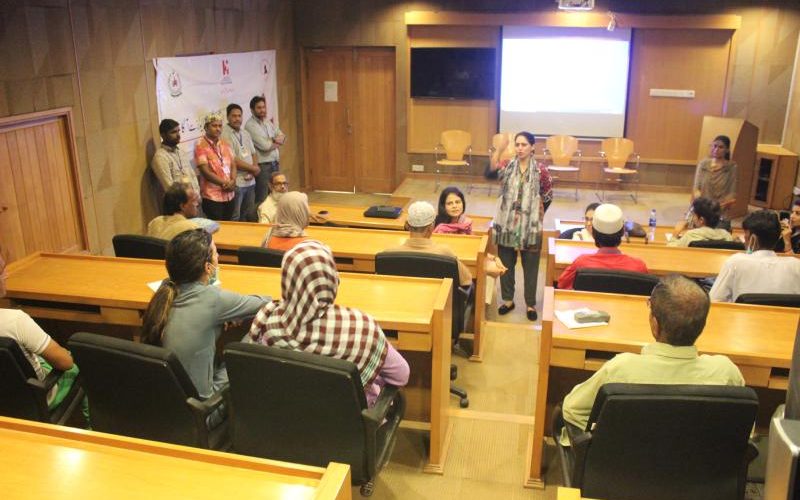
Karachi
August 22, 2019
HIV (Human Immunodeficiency Virus) is a virus that attacks cells that help the body fight infection, making a person more vulnerable to other infections and diseases. It is spread by contact with certain bodily fluids of a person with HIV, most commonly during unprotected sex or through sharing injection or drug equipment.
The Indus Hospital (TIH) started an Antiretroviral Therapy Treatment Center at TIH, Korangi Campus in 2007. In 2016, the treatment Center scaled-up to become an HIV Program with an initial focus on scaling-up the enrolment of People Who Inject Drugs (PWIDs) and introduce the comprehensive programmatic management to all patients affected by HIV. The programmatic management approach supports patients beyond clinical care by deploying a team which facilitates in regular follow-ups at the household; counselling for adherence, depression, and anxiety to help decrease the loss to follow-up.
The ART Center conducted an awareness session on August 22, 2019 at the Korangi Campus. The topic was stigma and discrimination associated with HIV. Ms. Fahmida Iqbal Khan was the speaker. She is the Community Support Advisor, UNAIDS Country Office for Pakistan and Afghanistan. She has also worked with some key population, Government and UN partners to strengthen HIV response through community engagement.
She explained that HIV-related stigma and discrimination refers to prejudice, negative attitudes and abuse directed at people living with HIV and AIDS. Stigma and discrimination manifests itself in many ways. Discrimination and other human rights violations may occur in healthcare settings, barring people from accessing health services or enjoying quality health care. People living with HIV are shunned by family, peers and the wider community, they also face poor treatment in educational and work settings which result in human rights violations and psychological damage. This behaviour results in various issues. It can make affected people to not access to HIV testing and treatment.
The behaviour is associated with some myths: HIV and AIDS are always associated with death; HIV is associated with homosexuality, drug use, sex work, or infidelity; HIV is only transmitted through sex; inaccurate information about how HIV is transmitted, which creates irrational behaviour and misperceptions; loss of income and livelihood; loss of marriage and childbearing options; poor healthcare; and loss of reputation.
Ms. Iqbal suggested some ways to end the stigma and discrimination. Anti-discrimination laws can protect HIV patients. Stigma and discrimination reduction should be part of national strategies to tackle HIV and AIDS. Community and especially patients and their families should be educated and make aware of their rights.




